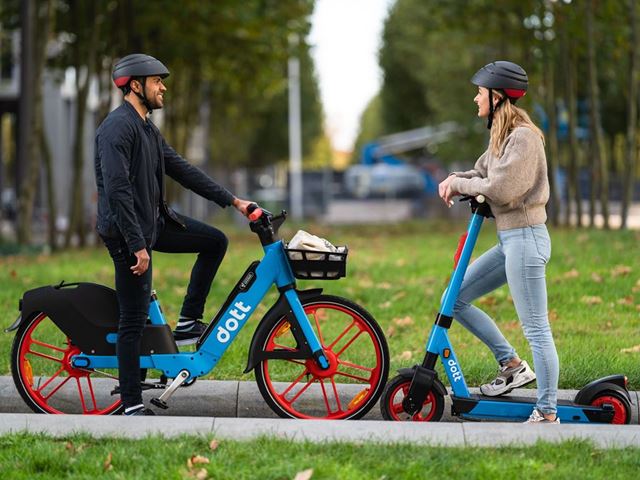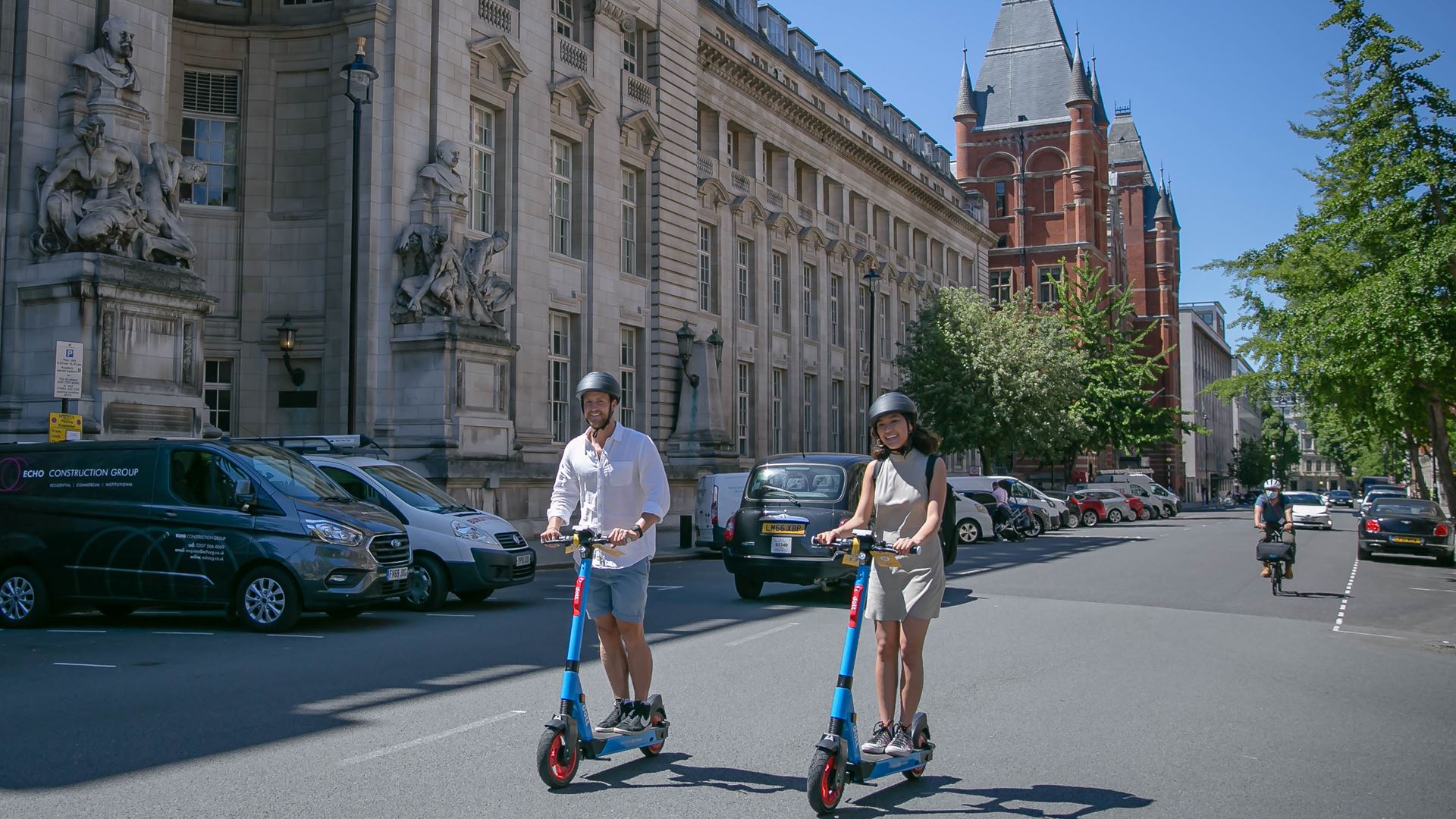
- Latest: Welcome to Auto Futures - Mobility News, Features, Exclusives and More...
- Latest: Subaru Europe Unveils the Brand's First All-Electric Compact SUV
- Latest: Lucid, Nuro & Uber Partner on Next-Generation Autonomous Robotaxi Service
- Latest: GM & Redwood Materials to Repurpose EV Batteries for Energy Storage
- Latest: Stellantis Discontinues Hydrogen Fuel Cell Technology Development Program
- Latest: Paving the way for an Electrified Future - L-Charge CEO
Freeing Cities From Cars & Congestion - Duncan Robertson, General Manager UK&I, Dott on London E-Scooter Trial
Adrian Smith
- Mar 09 2023

The first phase of London's existing e-scooter trial is coming to an end, with over two million journeys conducted during the trial (Transport for London’s figures, Oct, 2022), and 10 boroughs participating. Transport for London (TfL) is now running a tender for the next phase. Dott was one of the micro-mobility companies that took part in the trial.
"Together with the other operators and TfL, we have successfully shown that e-scooters can be integrated safely and in an orderly way," Duncan Robertson, General Manager UK&I, Dott, tells Auto Futures.
During the trial, Dott discovered that the average trip length is around 2.5km, rising to 3km in the summer, and the most popular time to travel is between 5-7pm. 50% of users say they hire Dott e-scooters to ride to work or school.
"As our service matures, both the gender split and age range of our users becomes more balanced, and our e-bikes have a more equal gender split and wider age range. The majority of our riders (63%) are connecting their Dott ride with public transport and more than two thirds (69%) who previously used cars, say they are using them less since using Dott," explains Robertson.
The cost-of-living crisis and rising energy costs have also had an impact on demand for Dott's services in the UK.
"We have seen an impact of rising energy prices and the increased cost of living across all our markets, including the UK. 1 in 3 Dott riders say they are using e-scooters and e-bikes more since the energy crisis. And more than two thirds (69%) who previously used cars say they are using them less."
Robertson says the next phase of the trial in London should focus on achieving mass use, reducing cars and improving air quality.
"We recommend involving all central boroughs, with a consistent approach across all of them. This approach should include high density of parking, reduced no-go and slow zones, and better infrastructure, such as more separated cycle lanes, which help users feel safe when trying out the service," he says.

E-Scooter Sounds to Increase Noticeability
There have been concerns about e-scooter safety, for pedestrians as well as riders. Dott has helped pioneer a number of innovations to help ensure a safe riding experience.
"London’s e-scooter trial has led the way in ensuring a safe and carefully integrated service. Measures such as license/registration plates, allocated parking, and low-speed zones have been successful in providing a safe service, and are now being introduced by other cities, following London’s example," says Robertson.
Dott has also developed a selection of e-scooter sounds, in partnership with researchers at the University of Salford and the Royal National Institute for Blind People. Three potential sounds to increase vehicle noticeability (without increasing noise pollution) have been tested by participants in an immersive 360 degree environment, featuring simulations of e-scooter riders in different scenarios.
"Working with RNIB, a group of people, including blind and partially sighted, were asked to identify when they are first aware of the e-scooter, and provide feedback on the suitability and preference of the three sounds in different circumstances."
"Since London, the tests have taken place in Rome, Stockholm and Madrid in collaboration with blind associations across Europe to show international applicability and advance to globally valid standard sounds. Following the virtual reality phase, the sounds will be tested on the streets of London and then across Europe, to validate the virtual reality results," he adds,

Moving to a Shared Model
Micro-mobility could play a role in boosting the UK's economy via time, health and congestion savings. Dott has worked with researchers from Oxford University, looking at the potential economic impact if more people switched to environmentally friendly transport.
Henri Moissinac, Co-Founder and CEO, Dott, states: “People are increasingly discovering that shared e-scooters and e-bikes can provide efficient, safe and reliable travel across their cities. This new research shows how choosing sustainable transport can benefit the wider economy as well. To unlock this potential, policy makers should take steps to make it easier for more people to switch to environmentally friendly alternatives.”
Looking to the future, we asked Robertson for his thoughts on what urban mobility will be like by 2030.
"It is crucial that we shift from our reliance on cars to more sustainable forms of transport, and in doing so we have an opportunity to transform our city centres. For too long, huge amounts of space have been given over to individual cars that remain parked the majority of the time, and cause congestion and pollution when they are in use," he predicts.
"Instead, we should move to a shared model, accepting that people have different transport needs depending on where they are travelling, how much luggage they have, etc. Shared fleets of different, environmentally friendly vehicles, well integrated into public transport, will allow people to pick the mode which suits them best at any given time. In the future this will be seamlessly integrated allowing the planning, payment and use of different transport services through a single application."
"With this becomes cities freed from cars and the congestion they cause, creating more space for leisure activities and a healthier, more pleasant place to live," concludes Robertson.
Popular Categories
